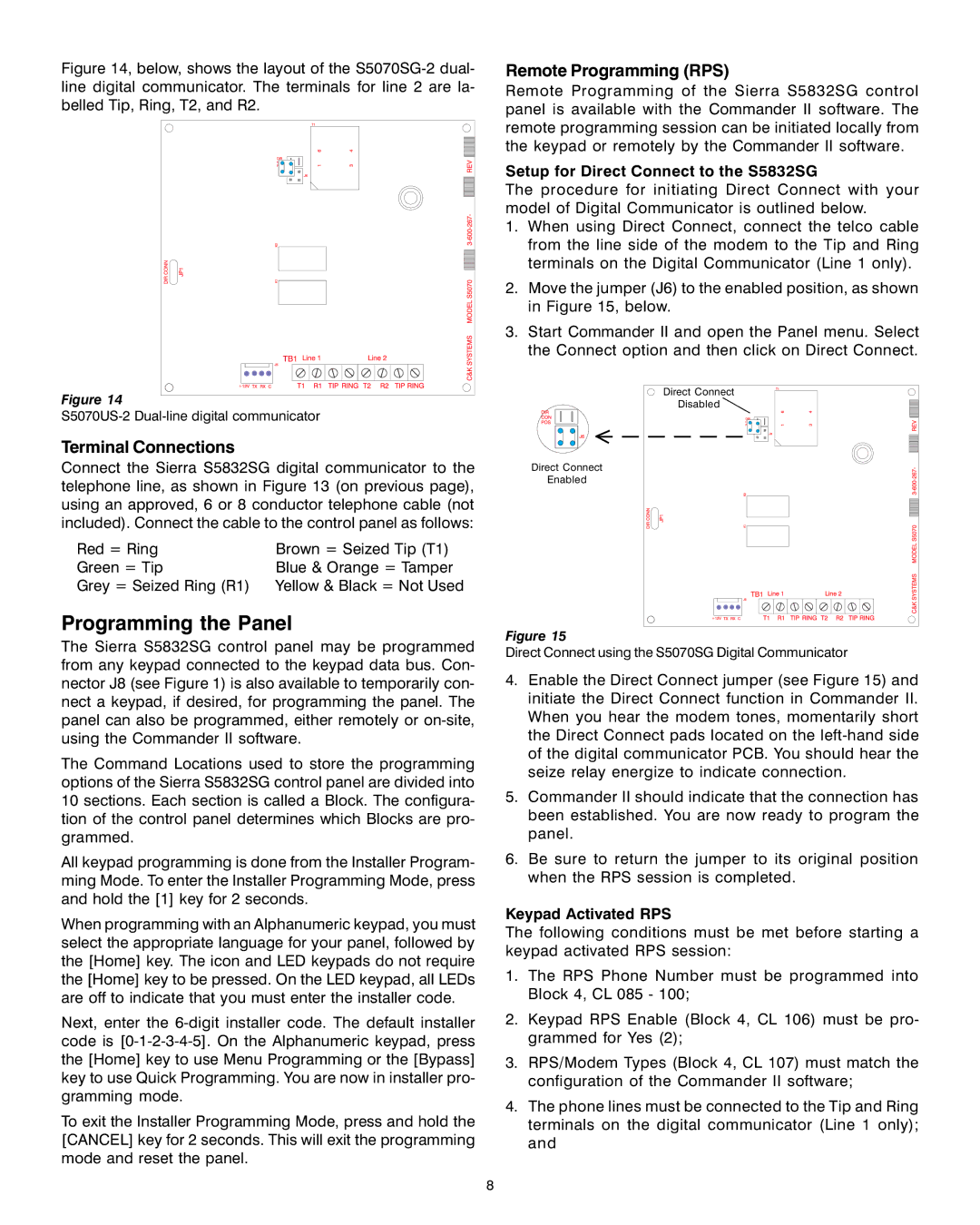
Figure 14, below, shows the layout of the S5070SG-2 dual- line digital communicator. The terminals for line 2 are la- belled Tip, Ring, T2, and R2.
Remote Programming (RPS)
Remote Programming of the Sierra S5832SG control panel is available with the Commander II software. The remote programming session can be initiated locally from the keypad or remotely by the Commander II software.
Setup for Direct Connect to the S5832SG
The procedure for initiating Direct Connect with your model of Digital Communicator is outlined below.
1.When using Direct Connect, connect the telco cable from the line side of the modem to the Tip and Ring terminals on the Digital Communicator (Line 1 only).
2.Move the jumper (J6) to the enabled position, as shown in Figure 15, below.
3.Start Commander II and open the Panel menu. Select the Connect option and then click on Direct Connect.
Figure 14
Terminal Connections
Connect the Sierra S5832SG digital communicator to the telephone line, as shown in Figure 13 (on previous page), using an approved, 6 or 8 conductor telephone cable (not included). Connect the cable to the control panel as follows:
Red = Ring | Brown = Seized Tip (T1) |
Green = Tip | Blue & Orange = Tamper |
Grey = Seized Ring (R1) | Yellow & Black = Not Used |
Programming the Panel
Direct Connect
Enabled
Direct Connect |
Disabled |
The Sierra S5832SG control panel may be programmed from any keypad connected to the keypad data bus. Con- nector J8 (see Figure 1) is also available to temporarily con- nect a keypad, if desired, for programming the panel. The panel can also be programmed, either remotely or
The Command Locations used to store the programming options of the Sierra S5832SG control panel are divided into 10 sections. Each section is called a Block. The configura- tion of the control panel determines which Blocks are pro- grammed.
All keypad programming is done from the Installer Program- ming Mode. To enter the Installer Programming Mode, press and hold the [1] key for 2 seconds.
When programming with an Alphanumeric keypad, you must select the appropriate language for your panel, followed by the [Home] key. The icon and LED keypads do not require the [Home] key to be pressed. On the LED keypad, all LEDs are off to indicate that you must enter the installer code.
Next, enter the
To exit the Installer Programming Mode, press and hold the [CANCEL] key for 2 seconds. This will exit the programming mode and reset the panel.
Figure 15
Direct Connect using the S5070SG Digital Communicator
4.Enable the Direct Connect jumper (see Figure 15) and initiate the Direct Connect function in Commander II. When you hear the modem tones, momentarily short the Direct Connect pads located on the
5.Commander II should indicate that the connection has been established. You are now ready to program the panel.
6.Be sure to return the jumper to its original position when the RPS session is completed.
Keypad Activated RPS
The following conditions must be met before starting a keypad activated RPS session:
1.The RPS Phone Number must be programmed into Block 4, CL 085 - 100;
2.Keypad RPS Enable (Block 4, CL 106) must be pro- grammed for Yes (2);
3.RPS/Modem Types (Block 4, CL 107) must match the configuration of the Commander II software;
4.The phone lines must be connected to the Tip and Ring terminals on the digital communicator (Line 1 only); and
8
